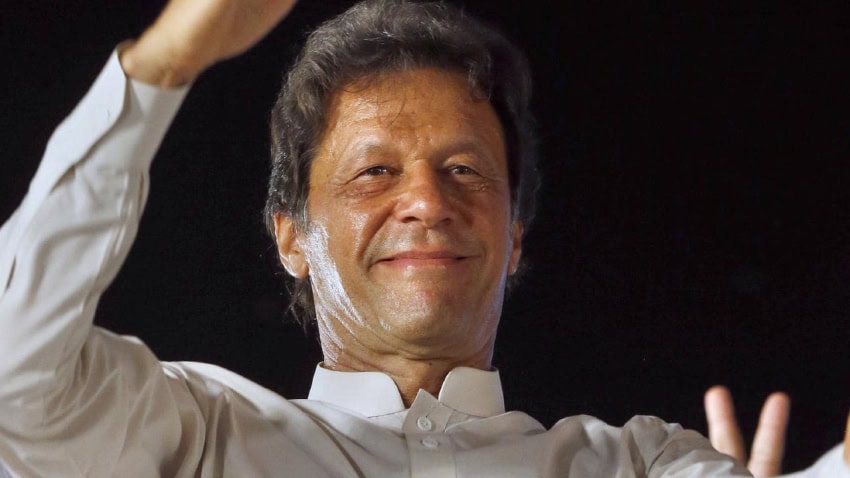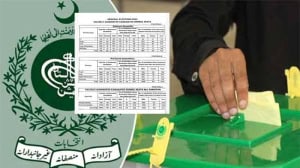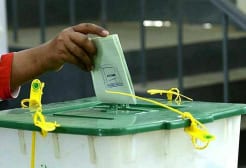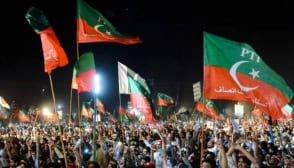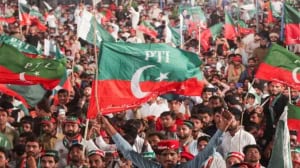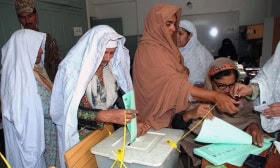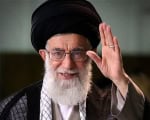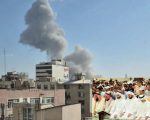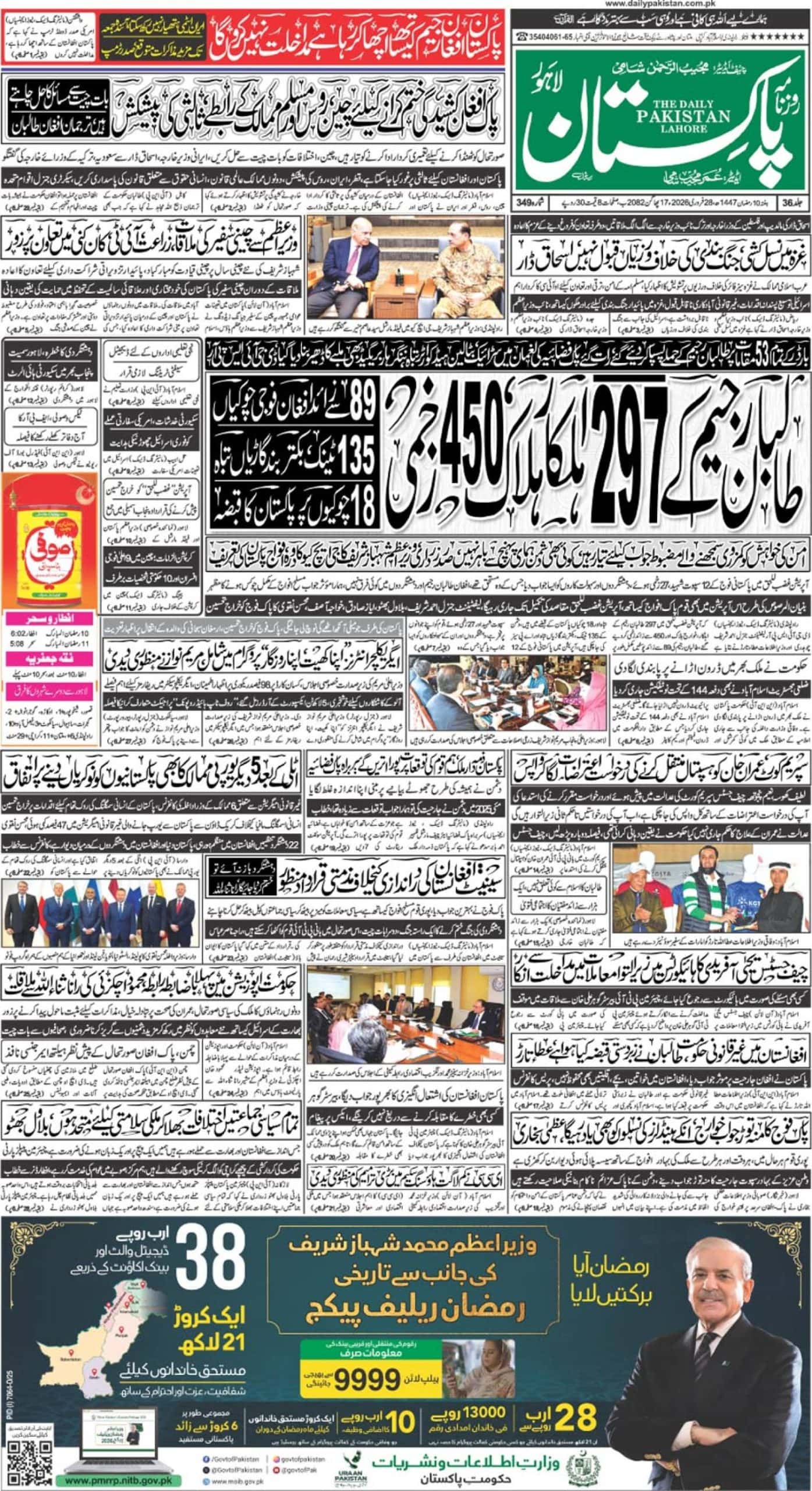ISLAMABAD – Imran Khan, the chairman of Pakistan Tehreek-e-Insaf is all set to take over the reins of the country for a period of next five years, the election results vividly predict.
As Pakistan concluded its 11th General Elections on Wednesday, with a single massive incident of violence, the vote counting is portraying PTI in a favorable light with Imran Khan visibly assuming the prime ministership of the country in just a few days.
Khan’s party, founded some 22 years ago, has managed to bag 118 seats of the National Assembly according to unofficial results in the fraught elections that pitched him against the all-powerful Pakistan Muslim League Nawaz and Pakistan Peoples Party.
The current tally would be topped up with reserved seats, as well as the independent candidates joining the party, paving way for the ambitious cricketer-turned-politician to step into the PM House from his palatial Banigala residence.
Khan’s party has trounced Pakistan Muslim League Nawaz by a landslide margin as the embattled party is leading on merely 63 seats with Pakistan Peoples Party at the third number, trying to gain 38 seats of the Lower House of the Parliament.
The election day went smooth as far as the security situation is considered, however, the suicide blast in the capital city of Balochistan, Quetta, marred the spirit of constituents who had thronged the polling stations to exercise their right to franchise.

The ambitious Khan visibly looked happy after the vote counting began in footages broadcasted from the hilltop estate of the politician, however, he did not make a victory speech, either as a gesture of humbleness or due to the fact that he was waiting for complete results.
PML-N Rejects Results
Shehbaz Sharif, the former chief minister of Punjab who had been put into the saddle to steer the embattled Pakistan Muslim League Nawaz convened a press conference on Wednesday midnight to reject the results.
https://twitter.com/CMShehbaz/status/1022208737690431488
In his presser, that bore the signs of disarray and anger, the politician complained about the procedure opted by the Election Commission of Pakistan in preparing the results with a special reference to the form 45.
What Provincial Assembly Results Say
Though Imran Khan appeared to be contending for the slot of PMship, his party contested at the provincial level as well and surprised the political analysts and opponents alike.
Punjab Assembly
With a population of over 110 million, the Punjab province has been a bastion of Pakistan Muslim League Nawaz, however, the recent elections portray a dismal picture for them.
According to unofficial results, PML-N is leading on 131 seats of the provincial assembly while Pakistan Tehreek-e-Insaf is leading on 122 seats.
Moreover, the independent candidates are dominating 31 seats as per the results of 53 percent of the polling stations; the independents can swing in either direction and chances are high that they might turn to PTI for the reason that the party is surely making a government at the federal level.
KPK Assembly
A tantamount to the satisfactory performance of Pakistan Tehreek-e-Insaf is its victory in the war-battered Khyber Pakhtunkhwa province.
Imran Khan’s party is leading on 64 seats of the provincial assembly leading far behind, the coalition of religious groups, Muttahida Majlis-e-Amal (MMA) currently overpowering its rivals on 11 seats.
Moreover, the Awami National Party (ANP) is leading on 8 seats as per the results of 42 percent of the polling stations.
Sindh Assembly
Pakistan People’s Party would continue to rule Sindh, extending its decade-long government, as it has bagged 73 seats of the provincial assembly in the General Elections 2018.
According to incomplete results provided by the Election Commission of Pakistan, the Pakistan Tehreek-e-Insaf (PTI) stood at the second position with 23 seats, while the Muttahida Qaumi Movement-Pakistan has secured 18 seats, out of the 130 Sindh Provincial Assembly seats for 39 percent of the polling stations.
Balochistan Assembly
Pakistan’s land-wise biggest province has elected the nationalist parties to rule them, brushing aside the mainstream political parties of the country.
The Balochistan Awami Party (BAP) is leading on 11 seats while Muttahida Majlis-e-Amal (MMA) and Balochistan National Party are leading on 8 seats as per the unofficial results.
What’s Next
The Election Commission of Pakistan will start releasing official results today and in a matter of 24 hours, the political landscape of Pakistan would transform from hazy to sunny.
Although on the federal level, Khan is undoubtedly assuming the throne, however, on the provincial level, independents can swing the results in either side.
Soon after the official results, President Mamnoon Hussain will convene a session of the parliament where the chief executive of the country would be selected.
To form a government in the center, any party would need a two-thirds majority, either as a single party or as a coalition.

